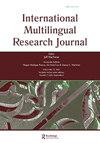全球化、语言市场和微妙的身份表现:伊朗的波斯语-英语代码转换
IF 2.1
1区 文学
Q2 EDUCATION & EDUCATIONAL RESEARCH
引用次数: 1
摘要
摘要本文探讨了全球化的影响,以及随之而来的与不同语言和语言实践相关的索引性重新排序,对伊朗波斯语-英语双语伊朗人的社会语言技能和行为的影响。我关注参与者的波斯语-英语代码转换(CS)实践以及他们在自然发生的对话中对CS的定位,以研究他们如何在他们的区分模式和身份表现中使用CS。基于民族志的话语分析,我展示了说话者在波斯语-英语CS实践中基于音韵学采用更新、更细微的分化模式。我认为,由于全球化,尤其是互联网,最近英语在伊朗的知名度和广泛可及性,导致说英语的人陷入焦虑状态,以确保他们的独特利益。我详细阐述了在新的重新排序的语言市场中,说话者如何将CS与英语语音保存以及保存的“真实性”作为他们实现差异化行为并表现其(上层)中产阶级和/或精英地位的主要资源。该研究对CS和全球化的学术研究具有启示意义,因为它要求对CS采取更细致和动态的方法,并强调了研究全球化对未被充分研究的社区的日常社会语言学实践的影响的重要性。(全球化,语言市场,索引性,波斯语-英语代码转换,身份表现)。本文章由计算机程序翻译,如有差异,请以英文原文为准。
Globalization, linguistic markets, and nuanced identity performances: Farsi-English code-switching in Iran
ABSTRACT This paper explores the impact of globalization, and the consequent re-ordering of indexicalities associated with different languages and linguistic practices, on the sociolinguistic repertoires and behaviors of Farsi-English bilingual Iranians in Iran. I focus on the participants’ Farsi-English Code-switching (CS) practices and their positionings toward CS in naturally-occurring conversations to examine how they use CS in their differentiation patterns and identity performances. Drawing on ethnographically-grounded discourse analysis, I demonstrate the speakers’ resort to newer, more nuanced differentiation patterns on the basis of phonology in Farsi-English CS practices. I argue that the recent visibility and wide accessibility of English in Iran through globalization, especially the Internet, has led speakers to states of anxiety to secure their profit of distinction. I elaborate on how, in the new re-ordered linguistic market, speakers take up CS with English phonological preservation, and the “authenticity” of the preservation, as the main resource with which they fulfill acts of differentiation and perform their (upper)middle-classness and/or elite status. The study has implications for the scholarship on CS and globalization as it calls for more nuanced and dynamic approaches towards CS and highlights the significance of investigating the impact of globalization on the everyday sociolinguistic practices of an understudied community. (Globalization, linguistic markets, indexicality, Farsi-English code-switching, identity performance).
求助全文
通过发布文献求助,成功后即可免费获取论文全文。
去求助
来源期刊
CiteScore
4.10
自引率
4.80%
发文量
19
期刊介绍:
The International Multilingual Research Journal (IMRJ) invites scholarly contributions with strong interdisciplinary perspectives to understand and promote bi/multilingualism, bi/multi-literacy, and linguistic democracy. The journal’s focus is on these topics as related to languages other than English as well as dialectal variations of English. It has three thematic emphases: the intersection of language and culture, the dialectics of the local and global, and comparative models within and across contexts. IMRJ is committed to promoting equity, access, and social justice in education, and to offering accessible research and policy analyses to better inform scholars, educators, students, and policy makers. IMRJ is particularly interested in scholarship grounded in interdisciplinary frameworks that offer insights from linguistics, applied linguistics, education, globalization and immigration studies, cultural psychology, linguistic and psychological anthropology, sociolinguistics, literacy studies, post-colonial studies, critical race theory, and critical theory and pedagogy. It seeks theoretical and empirical scholarship with implications for research, policy, and practice. Submissions of research articles based on quantitative, qualitative, and mixed methods are encouraged. The journal includes book reviews and two occasional sections: Perspectives and Research Notes. Perspectives allows for informed debate and exchanges on current issues and hot topics related to bi/multilingualism, bi/multi-literacy, and linguistic democracy from research, practice, and policy perspectives. Research Notes are shorter submissions that provide updates on major research projects and trends in the field.

 求助内容:
求助内容: 应助结果提醒方式:
应助结果提醒方式:


